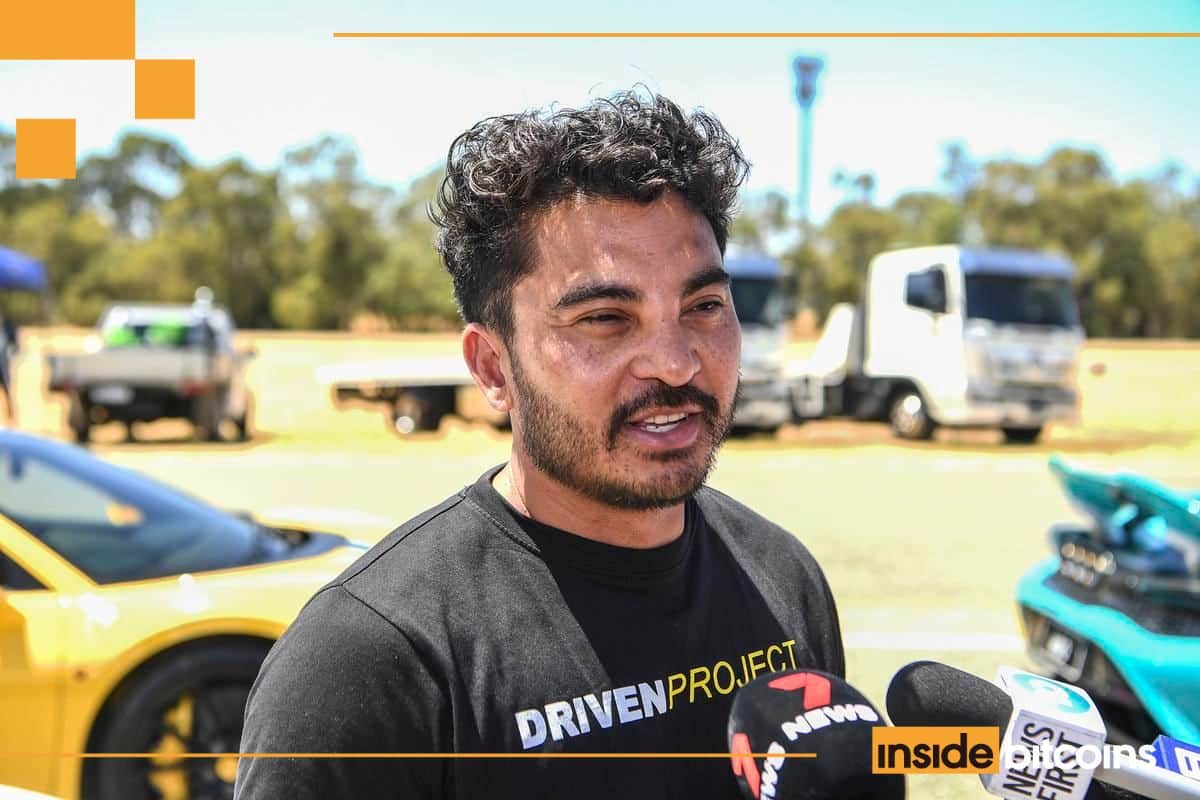The billionaire founder and CEO of Virtual Gaming Worlds (VGW), Laurence Escalante, has recently unleashed a scathing response to investors critical of his company’s business practices. In an era where sweepstakes gaming faces increasing scrutiny, this clash between a visionary founder and concerned stakeholders highlights the tensions within one of the industry’s fastest-growing companies.
Escalante’s Telegram Tirade: No Room for Doubters
In a recent outburst on Telegram, Escalante made his position crystal clear to dissatisfied investors: sell your shares and walk away if you don’t trust the leadership. This confrontational stance comes amid growing investor frustration over what many perceive as VGW’s deliberate opacity despite its meteoric financial growth.
“There’s a reason we do what we do,” Escalante explained in his message, defending the company’s selective disclosure approach as necessary to avoid legal complications and ensure information equality among shareholders. But his message took a particularly aggressive turn when addressing financial analyst Ricky Saini, who has been openly critical of VGW’s practices.
“Shut the f*** up,” Escalante bluntly told Saini, claiming the analyst has no understanding of the company’s internal workings. His frustration extended beyond Saini to anyone “talking shit” about VGW, arguing that outsiders simply cannot comprehend the challenges facing the company and that legal constraints prevent him from providing further clarification under the Corporations Act.
This isn’t Escalante’s first social media outburst. He recently vented on Instagram about “destructive rumors” concerning his personal life, establishing a pattern of direct and unfiltered communication when feeling under attack.
The VGW Journey: From Startup to Sweepstakes Giant
To truly understand the context of this controversy, we need to examine VGW’s remarkable ascent in the gaming industry. Founded in 2010 by Laurence Escalante, Virtual Gaming Worlds began with a vision of creating inclusive virtual entertainment experiences where people from anywhere could join communities for interactive entertainment.
Escalante’s background prepared him well for this venture. Having studied Economics and Actuarial Studies at Macquarie University, he brought a decade of experience in investment advisory, superannuation, taxation, and financial planning to his new company. Before VGW, Escalante had already established himself in the gaming industry by founding White Knight Games in 2004 and investing in Anino Mobile, a Philippine game development studio later acquired by Playlab.
VGW’s first major breakthrough came in 2012 with the launch of Chumba Casino, which revolutionized the social casino gaming market. Building on this success, the company expanded its portfolio in 2016 by introducing Global Poker, which quickly became one of North America’s fastest-growing online social poker sites. Cryptocurrency
The company further strengthened its market position in 2018 by acquiring and launching LuckyLand Slots, establishing another popular brand in its growing collection of social casino platforms. Today, VGW continues to lead in online social games innovation, offering free-to-play games where players have opportunities to redeem prizes.
Explosive Financial Growth Amid Controversy
VGW’s financial performance has been nothing short of extraordinary. From generating $349.5 million in revenue in 2019, the company has experienced exponential growth, reaching an impressive $6.15 billion in total revenue by 2024. This remarkable growth trajectory demonstrates the effectiveness of VGW’s business model and the significant market demand for its products.
Despite this financial success, the company has become increasingly secretive about its operations. VGW recently transitioned from biannual to annual financial reporting, leaving many investors feeling left in the dark. Additionally, despite its size and importance in the sweepstakes sector, the company has yet to establish an online investor hub where shareholders can access regular updates.
The Sweepstakes Model: Walking the Legal Tightrope
VGW’s business approach centers around the sweepstakes concept, which operates in a legal gray area in many jurisdictions. While traditional online gambling faces heavy regulation or prohibition in many U.S. states, sweepstakes casinos exploit a loophole allowing them to offer gambling-like experiences without technically qualifying as gambling operations.
Chumba Casino, one of VGW’s flagship brands, describes itself as “a leading social casino site” utilizing “a unique sweepstakes model” that enables “safe and secure redemption of $weeps Cash™ for cash prizes to players in the US and Canada.” The company emphasizes its commitment to legal compliance, stating it engages with leading experts across jurisdictions to ensure adherence to applicable laws.
The sweepstakes model typically functions by offering two types of virtual currency: one with no monetary value used purely for entertainment, and another potentially redeemable for real prizes or cash. Players can receive the redeemable currency through free methods, such as mail-in requests or as bonuses with purchases of the entertainment-only currency.
This approach has allowed companies like VGW to operate in markets where traditional online gambling faces restrictions. However, regulators increasingly question whether this model truly falls outside gambling regulations or merely circumvents them through technicalities.
Regulatory Walls Closing In
As VGW continues its expansion, regulatory challenges have mounted, particularly in the United States. Delaware’s Division of Gaming Enforcement issued a cease-and-desist order to VGW in February 2023 regarding their slot operations, explicitly stating that allowing Delaware residents to participate violated state law. Despite this order, reports indicate that as of August 2024, the company was still operating in Delaware.
Maryland recently became the fourth state to issue a cease-and-desist letter to VGW, potentially setting the stage for legislative action against sweepstakes casinos. These actions add to the growing list of states where VGW has faced regulatory pushback, including Connecticut, Idaho, Michigan, Montana, Nevada, and Washington.
Beyond these specific state actions, the entire sweepstakes industry faces criticism from various stakeholders, including traditional gambling operators and tribal casino owners. These critics argue that sweepstakes companies essentially operate as unlicensed online casinos while avoiding the strict regulatory requirements and licensing fees imposed on legitimate gambling businesses.
The legal landscape for sweepstakes casinos remains complex and varies significantly by jurisdiction. While some states have taken direct action against these operations, others have yet to clarify their stance. New Jersey stands as a notable outlier, having considered creating a regulatory framework that would allow sweepstakes operators to function as legal entities.
Investor Relations: A Growing Tension Point
The recent outburst from Escalante highlights underlying tensions regarding VGW’s corporate governance and transparency practices. Despite the company’s impressive financial performance, investors have expressed concern about the limited information flow from management.
The shift from biannual to annual reporting represents a significant reduction in financial update frequency, leaving investors with less timely information about the company’s performance. This change, combined with the absence of a dedicated investor information hub, has contributed to growing frustration among shareholders.
The situation is further complicated by the regulatory scrutiny VGW faces in multiple jurisdictions. Investors naturally want to understand how these challenges might impact the company’s future operations and profitability, making transparent communication about legal and regulatory matters particularly important.
Escalante’s confrontational response to these concerns may reflect the pressures of navigating a complex and changing regulatory landscape while managing a rapidly growing business. However, it also raises questions about the company’s approach to investor relations and its willingness to address legitimate shareholder concerns.
Competitive Landscape: Standing Out in a Crowded Field
VGW operates in a competitive and increasingly controversial sector. While it has established itself as a leader in the sweepstakes casino space, it faces competition from numerous other operators.
Chumba Casino’s competitors include major players in both traditional and online gambling, such as Harrah’s Cherokee Casino Resort, DraftKings, Betfair, BetMGM, 888holdings, PADDY POWER, Bovada, Resorts Digital Gaming, and FOX Bet Super 6, among others. This competitive landscape spans both traditional casino operators and newer digital platforms, including platform that offer the option to play using cryptocurrencies, such as crypto poker.
For context, Chumba Casino alone was reported to generate $5 million in revenue in 2025, though this figure pales in comparison to VGW’s total revenue of over $6 billion, suggesting the company’s other brands contribute substantially to its overall financial performance.
The industry’s scale becomes apparent when compared to traditional regulated gambling markets like Nevada, where gaming operators earned $1.28 billion in revenue in May 2023 alone. This comparison highlights both the traditional gambling industry’s scale and the potential market opportunity for alternative models like sweepstakes casinos.
Australia’s Rising Gaming Star: Escalante’s Background
Behind VGW’s success stands Laurence Escalante, a gaming and technology entrepreneur with a financial services background. Before founding VGW, Escalante spent ten years as a technical specialist in investment advisory, superannuation, taxation, and financial planning.
His entrepreneurial journey in gaming began well before VGW, founding White Knight Games in 2004 and investing in Anino Mobile, a Philippine game development studio later acquired by Playlab in 2014.
Since establishing VGW in 2010, Escalante has led the raising of approximately $16 million in early-stage funding, spearheaded multiple innovations in real-money and virtual-currency gaming (including VGW’s Social Casino sweepstakes gaming products), and developed VGW’s global and specialized development and operations teams.
The Uncertain Road Ahead
As regulatory scrutiny intensifies and more states take action against sweepstakes casinos, VGW faces significant challenges in maintaining and expanding its market presence. The company’s future likely depends on its ability to navigate an increasingly complex legal landscape while addressing investor concerns about transparency and governance.
One potential path forward could involve seeking proper gambling licenses in jurisdictions that offer regulatory frameworks for online gaming. However, this approach would subject VGW to the same stringent requirements and fees faced by traditional gambling operators.
Alternatively, the company might continue refining its sweepstakes model to more clearly differentiate it from gambling while advocating for clearer regulations that recognize and accommodate social gaming with prize redemption features. This strategy would require significant investment in legal expertise and lobbying efforts.
VGW’s impressive growth trajectory suggests substantial market demand for its products, but the sustainability of its current business model remains uncertain in the face of evolving regulatory perspectives. This uncertainty may contribute to tensions between management and investors seeking greater clarity about the company’s strategic direction and risk management approach.
In Australia, VGW faces additional scrutiny from the Taxation Office, adding another layer of complexity to the company’s regulatory challenges. How Escalante and his team respond to these mounting pressures will likely determine whether VGW can maintain its position as an industry leader or will need to fundamentally transform its business model in the coming years.
Related News
-
- Sweepstakes Casinos Under Fire in New York and Montana
- New York’s Sweepstakes Ban Legislation: Potential Impacts on Small Business Community and Gaming Industry
- Growing Political Pressure Amid Delays in New York Casino Licensing
- Gaming Industry Boosts Spending on Responsible Gaming Efforts Amid Growing Commitment


